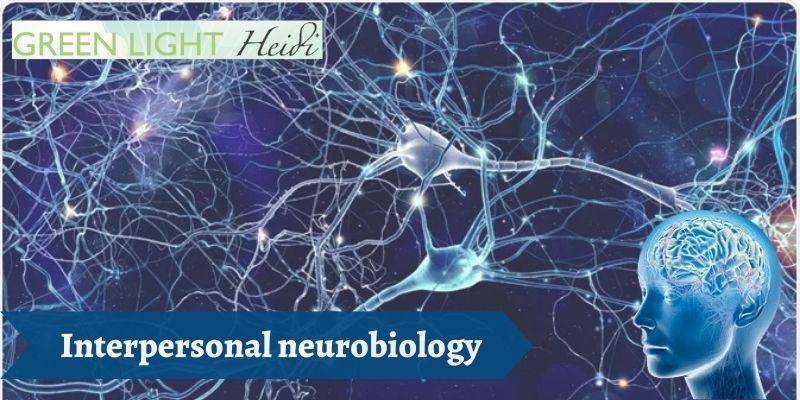Anger Management with Interpersonal Neurobiology

In interpersonal neurobiology, anger as an emotion is viewed from the perspective of cognitive neuroscience. And cognitive neuroscience states that cognition and emotion are dynamically combined with physical arousal. When anger is induced as an emotion in humans, it can unconsciously affect physiological and neural resources.
Affective states of anger are subsequently expressed in the brain as well as the body, and these neural and physiological changes can influence the cognitive processes. Many studies and resources have been expended on studying the emotions of happiness, sadness, and fear, which align with psychopathological states of hypomania, depression, and anxiety.
However, anger is considered a secondary emotion that has remained understudied in physiology and neuroscience. Therefore, it gets particularly difficult to understand the effects of anger on behavior and cognition.
In this article, we shall discuss the aspects of interpersonal neurobiology and clinical practice that will help manage anger and its adverse effects on the human body.
What do we understand by anger?
Before we get ahead with the aspects of treating anger issues with interpersonal neuroscience, we must understand what exactly the emotion of anger denotes. Anger comes in from a point where an individual responds to a perceived threat. Anger could also be a reaction coming from the point of frustration.
In medical neuroscience, frustration is a trigger for eventual aggression and anger. This article aims to discover the cognitive neuroscience aspect of anger. According to years and years of research, experts have noticed that anger generally leads to aggression, which negatively impacts not only the individual but the entire society.
Anger can be managed with adequate use of techniques in interpersonal neurobiology. While anger is associated with emotions, violence or aggression is a behavioral pattern that arises from anger-related feelings. Anger needs to be managed at all costs, as a deficit of proper anger management could have negative consequences leading to ill mental health and poor decision-making abilities.
How can Anger be treated?
Anger and aggression can be treated using different methods. Psychotherapies based on cognitive behavior are one of the important aspects of interpersonal neurobiology and clinical practice, which have proven to be successful in calming down a person’s reactivity towards aggression and anger. Anger management has also helped increase the self-esteem of an individual.
However, mindfulness and cognitive behavior treatment are the best ways of managing anger, which are widely practiced today. Here are certain steps which will help you in controlling your anger:
1. Take a pause before you utter the words:
Generally, anger is expressed through spiteful words. In a heated interaction, it is easy to say some words you might regret later. Therefore, it is always the best idea to pause and breathe before you say anything that you wouldn’t really mean.
2. Instead of playing the blame game, express what bothers you:
Experts say it’s easy to blame the other person when the situation doesn’t work in your favor. However, it would be a wiser choice to express the details or incidents that bother you instead of shifting the blame onto someone else. You always have a choice to express your frustration without confronting an individual, so you do not end up hurting someone unintentionally.
3. Exercising helps:
The experts in interpersonal neurobiology suggest exercising as one of the best solutions for anger management. When you are involved in some forms of physical activities, serotonin is released in your body. And the serotonin hormone is known for reducing stress and frustration. So once your frustration is taken care of, there will hardly be any point that would trigger you.
4. Taking small breaks are important:
Plan your schedule in such a way that you will be able to take some small breaks in between a stressful situations. More than small children, adults need to be introduced to the concept of taking some breaks in between. A few moments of solitude or a break from work will help you clear your mind and release some frustrations.
5. Let go of the things that hurt you:
We understand that letting go of the things that hurt you is not an easy task. And it is always easier to preach than practice. When you let negative emotions and anger consume you, you will ultimately be more affected by the situation than the other individual or incident that caused you pain. Forgiving is difficult, but it is the best solution in order to strengthen yourself and help you learn from a specific situation.
6. Look for solutions instead of causes:
There will always be endless possibilities and incidents that might be the reason behind your hurtful feelings. But, now that the moment is gone and if you cannot do anything to change what happened, it is better to look for solutions to resolve it rather than digging a grave of problems and causes.
As they always say, let the bones be buried in the closet. If you consult with a therapist with interpersonal neurobiology and clinical practice, they will help you focus on finding solutions to resolve the problems rather than holding onto them.
Conclusion:
Several steps are there to help you manage your anger issues. However, suppose you feel your anger is turning into aggression and repeatedly harming you and others around you. In that case, it’s better to seek professional help from an interpersonal neurobiology expert. They will help you find out the root cause of your distress, and with adequate counseling sessions, your stress and frustration can be resolved.
If you are looking for an expert in psychoanalysis and interpersonal neuroscience therapy, we at Green Light Heidi can help you. Dedicated professionals at our clinic look into the aspects that bother you using a scientific approach and proven techniques. To book a session with us, drop an email at HeidiCrockett@gmail.com

Comments